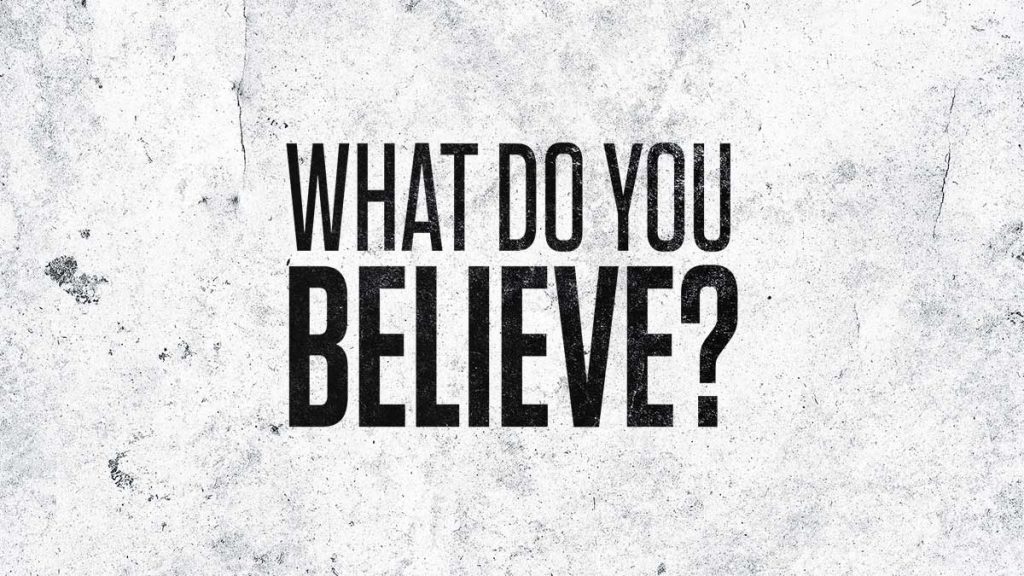
When digital technology arrived in church offices towards the end of the 20th century, it launched a timesaving revolution with regard to mundane tasks like bulletin preparation.
It also provided some genuinely funny moments.
One of them happened at a church that quickly grasped that their new computer could retain a liturgical paradigm for funerals. All the administrative assistant had to do was replace the name of the last person who was deceased with the new one. Everything else would remain the same.
When it was time to celebrate the life of a woman named Edna, a single keystroke inserted her name wherever the name of the previous decedent, a woman named Mary, appeared in the bulletin. Everything went smoothly until the Apostles’ Creed. That’s when the congregation stood and said together, “And I believe in Jesus Christ, who was conceived by the Holy Spirit and born of the Virgin Edna.”
It’s a safe bet that wasn’t the first time a group of worshippers rattled off what was printed in the bulletin without asking themselves if they really believed what they were saying.
The philosopher Michael Novak suggests that the things people believe – our personal convictions – generally fall into three categories.
First, we all profess a number of public convictions. These are things I say I believe, and which I truly hope others think I believe, but which, in the end, turn out to be not much more than idle words.
Every four years, as the next presidential election approaches, candidates from both parties spend a considerable amount of time crisscrossing the state of Iowa. That’s because the Iowa caucuses are the first real “beauty test” of the presidential primary season. It would not be unusual to hear a candidate say at a breakfast rally, “It’s so great to wake up on a January morning in Des Moines!” Actually, no, it isn’t that great. Even Des Moines residents are likely to admit that. But if you’re hoping to win the hearts of Iowa voters, sometimes you end up saying things you simply know you don’t believe.
When it comes to discipleship, we all face the temptation of thinking it’s enough to get the words right – “I believe in Jesus, blah, blah, blah” – without ever taking the time to comprehend their life-altering significance. Spiritual perjury is an ever-present danger for all of us.
Second, Novak speaks of private convictions. These are things I sincerely think I believe. But maybe, when the chips are down, my beliefs turn out to be more fragile than I thought.
“And my God will meet all your needs through the riches of his glory in Christ Jesus” (Philippians 4:19). What a great verse. It’s a promise I can build my life on. But then I lose my job. Or my health crashes. Or somebody who said they would never leave me announces they’re trading me up for a better happiness provider. These are the moments when I find out what I really believe about God’s provision.
Finally, there are my core convictions. No matter what I say to others, or how I talk to myself day in and day out, these are the things I really believe.
What do I really believe?
It’s actually pretty easy to answer that question. All I need to do is pay close attention to a trio of markers in my life:
How do I spend my time?
Where do I spend my money?
What do I daydream about?
If say I believe that Jesus wants his followers to spend significant time together – that “we are not ourselves by ourselves” – then that should show up on my calendar. And my checkbook should reflect an investment in the Body of Christ. And when I’m alone my thoughts and prayers should gravitate to various means of deepening my relationships with fellow disciples.
If I say I believe in serving the poor, the evidence should be blindingly obvious in my Day-Timer and my VISA statement. And in my idle moments I should catch myself ruminating on new ways to enrich the lives of those in need without creating dependencies.
It’s easy to say that the purpose of life is to love God and love others.
But do I really believe that? Love is as love does.
This is a great weekend to take a fearless personal inventory of my core convictions, and to ask God to steer me toward a way of life that is closer to his heart.
Here’s the good news: I won’t have to believe in the Virgin Edna.
